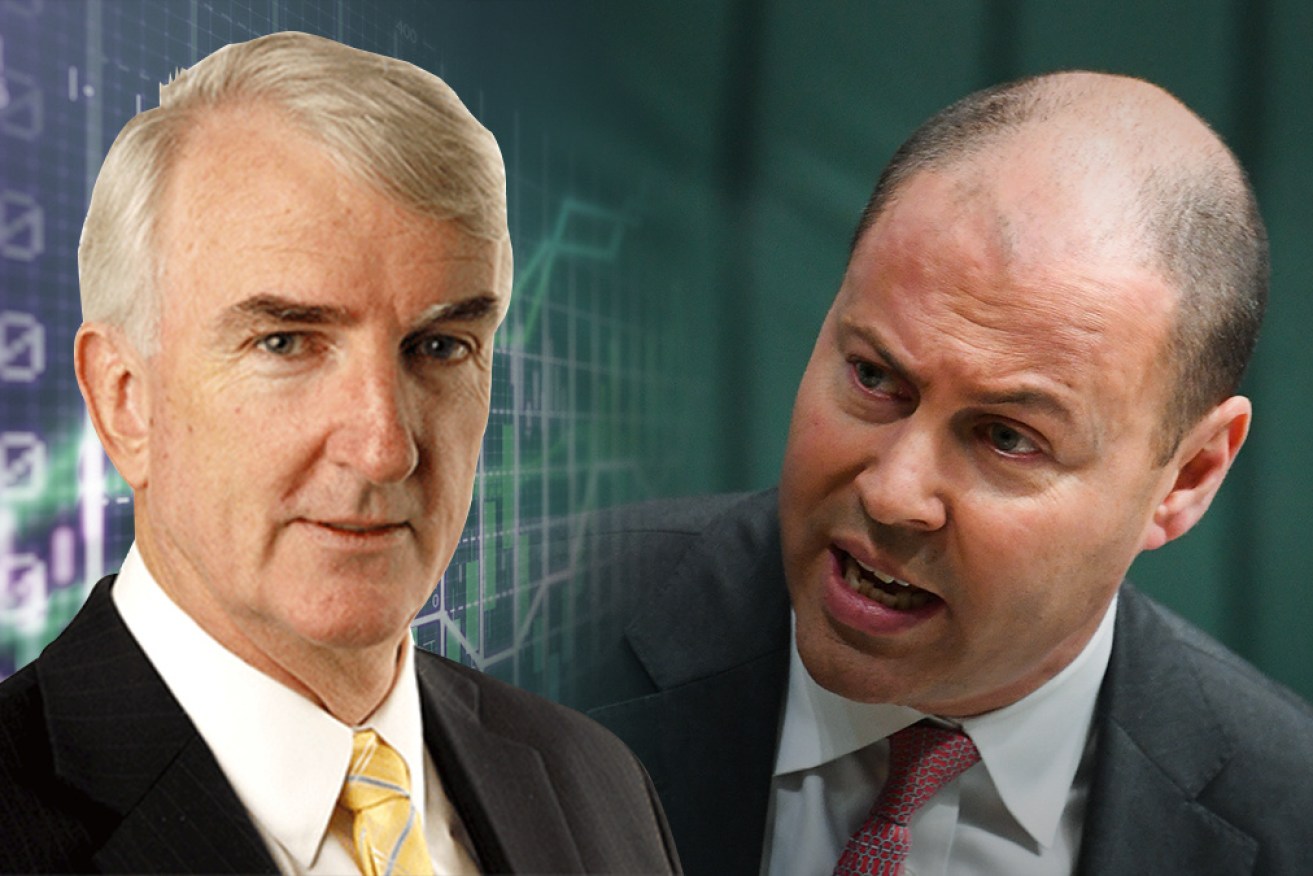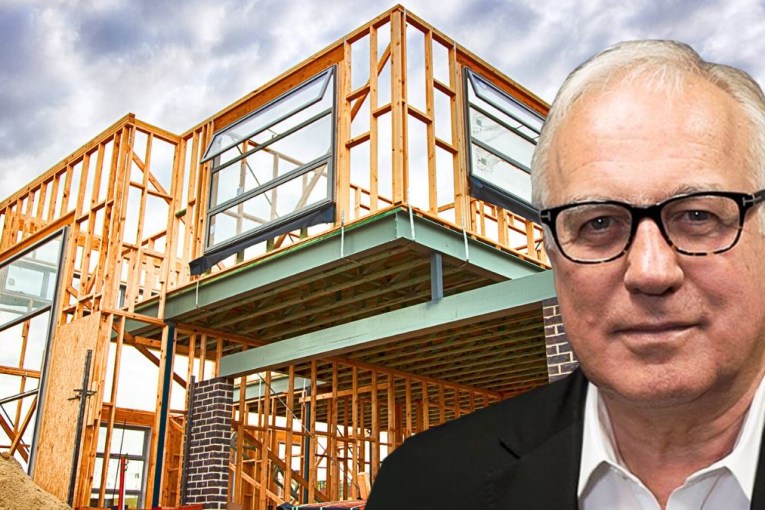Michael Pascoe: Treasurer without a plan turns to vaudeville


Josh Frydenberg needs to develop his own economic plan before criticising state premiers. Photo: TND
Josh Frydenberg at least deserves marks for gall.
As the extent of our economic crisis is about to be made official, the Treasurer without a plan has thrown the switch to vaudeville, juggling reality, pulling faces, doing a political moonwalk – anything other than provide a strategy for recovery.
The Treasurer’s media show of feigned outrage was successful in creating an early diversion from this week’s main game: Wednesday’s national accounts.
Helped by the inherently shallow nature of most morning broadcasts, he perhaps even prepared some feeble minds for the idea that the worst recession in 90 years is somehow the Victorian government’s fault and there’s nothing more the federal government can do.
It didn’t qualify as chutzpah but it certainly took hide for Mr Frydenberg to recite “Victorians need hope, we need to hear more about the road out, than a longer road in” when he has given the nation no indication of any road out, just a nod towards the economy having to find its own sweet way as the government’s partial safety net is steadily withdrawn.
To be clear: Six months into this crisis, Treasurer Frydenberg and Prime Minister Morrison have offered no plan for effective demand creation as a base for “a road out”.
A piddling HomeBuilder fig leaf here, a token billion spread among local councils there, perhaps a little infrastructure pull-forward somewhere else – it’s risible given the size of the national challenge.
The big dollars that are being spent – primarily in the form of the JobKeeper and JobSeeker schemes – are very worthy for their safety net value, preventing an even worse collapse, but they aren’t “a bridge” over the downturn, they haven’t prevented the worst shock since 1930-31.
Today, Wednesday, the Australian Bureau of Statistics is expected to show gross domestic product has had its biggest fall since the Great Depression, down about six per cent.
Within more common living memory, the accompanying graph provides perspective of the challenge – a much-worse contraction than either of the last serious recessions.
The median Australian is 38 years old, thus most of us have no or little memory of the pain and damage caused by prolonged high unemployment and underemployment.
The depth of the recession will be measured on Wednesday, but its length is yet to be decided. In part, that will be determined by the vision, ticker and pragmatism of our government.
Given the importance of businesses and consumer confidence in aiding recovery, an early commitment to a credible plan for shortening the recession should be the Treasurer’s highest priority now, not Victorian politics.
Alas, business and consumers have only been offered Conservative clichés as the safety nets are withdrawn – “red tape reform”, “industrial relations reform”, “training reform” and maybe an east-west pipeline for a “gas-fired” recovery.
Even to the extent that there might be value in parts of those political balloons, delivery is years away. What about 2021 and 2022, Treasurer? What’s your plan?
On Tuesday the Reserve Bank gave an indication of the deepening hole and the impact of being plan-less.
The central bank announced it is extending and more than doubling its term funding facility for banks, building societies and credits – $200 billion available to them at just 0.25 per cent.
The RBA has effectively printed $61 billion since March by buying government bonds, signalled it will continue to do so and pledged that “it will not increase the cash rate target until progress is being made towards full employment and it is confident that inflation will be sustainably within the 2–3 per cent target band”.
That translates into “as far as any eye can see”.

Reserve Bank of Australia Governor Philip Lowe says support will be required for years to come. Photo: AAP
Governor Philip Lowe stated the obvious after Tuesday’s board meeting: “Fiscal and monetary support will be required for some time given the outlook for the economy and the prospect of high unemployment.”
Another translation – “for some time” in RBA-speak means “for years”.
What’s more, Dr Lowe said the board “continues to consider how further monetary measures could support the recovery”.
That’s a nod towards the RBA looking for ways to do even more despite having done just about all it has said it can do without going radical.
With monetary policy at the end of its tether then, what will that “fiscal support” be?
Will it be efficient and pragmatic, aimed at getting the most bang (i.e. jobs) for the necessary many billions? Or will it be half-arsed stunts like HomeBuilder, doctrinaire “trickle-down” economics and fossil-fuel promotion?
“Victorians are in the dark,” Mr Frydenberg said to start the week. “They don’t know what happens next.”
Neither do the rest of us, Josh, neither do the rest of us.









